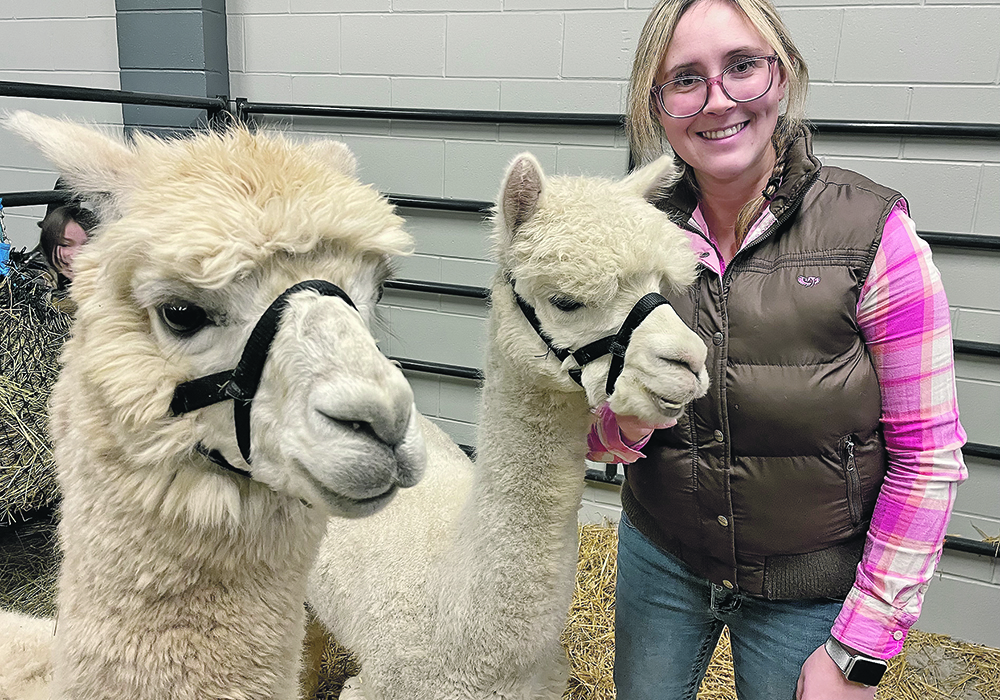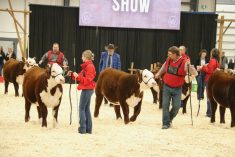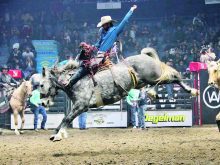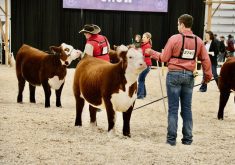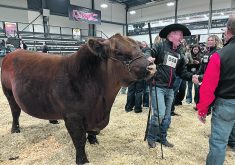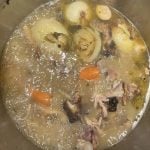Animals were judged in the ring and their wool was scored on its softness, sheen, weight and the shape of its fibres
The Alpaca Halter Show was a crowd magnet at this year’s Canadian Western Agribition.
The event, in which alpacas were shown and their wool judged, attracted breeders from Saskatchewan, Alberta and Manitoba.
Each alpaca was judged based on a handful of components, including the softness, sheen and weight of their fleece and whether it was made up of wavy or curly fibre.
Kelsey Kaban, who brought alpacas from her family-owned farm, DK Acres, near Esterhazy, Sask., said she and her partner began showing alpacas a year after purchasing their first pack.
Read Also

Alberta crop diversification centres receive funding
$5.2 million of provincial funding pumped into crop diversity research centres
“We got ([our first) in 2017,” said Kaban.
“I grew up with cattle and horses. So, when we moved into an acreage, I knew we wanted livestock of some sort.”
However, the family wasn’t sure where to begin when it came to choosing which species to raise.
“We threw around the idea of sheep and had actually gotten (sheep) as pets,” she said.
“Then we got into selling their product and it kind of just took off from there.”
The family decided to start buying alpacas not long afterward.
In 2018, Kaban decided to show their alpacas at Agribition, but the COVID-19 pandemic brought everything to a halt.
“When COVID hit, we kind of got cut off,” she said.
However, they didn’t let it get them down for long.
“(After that) we’ve shown every year we were able to, between then and now.”
Kaban is passionate about what she is doing.
“An alpaca is very sustainable and eco-friendly,” she said. “Most of our product is even produced right here in Saskatchewan, or at least in Canada with our own fibres.”
She said that with the weather turning cold and Christmas coming up, many people find alpaca wool to be a perfect alternative for mitts or toques typically made from sheep wool.
“A pack (of alpaca wool) is five times warmer than sheep’s wool. It’s also not an allergy inducer, either,” said Kaban.
“Sheep wool has lanolin in it, which is what most people are allergic to, and alpacas don’t have that, so people who are typically allergic to wool can usually handle alpaca.”
She said lanolin is a mixture of oil and wax substances, which builds up on sheep wool to reduce moisture. Any oil in alpaca wool is immediately stripped because it is easier to process.
As well, she said the amount of dust and dirt the wool collects is reduced because it is a natural fibre.

